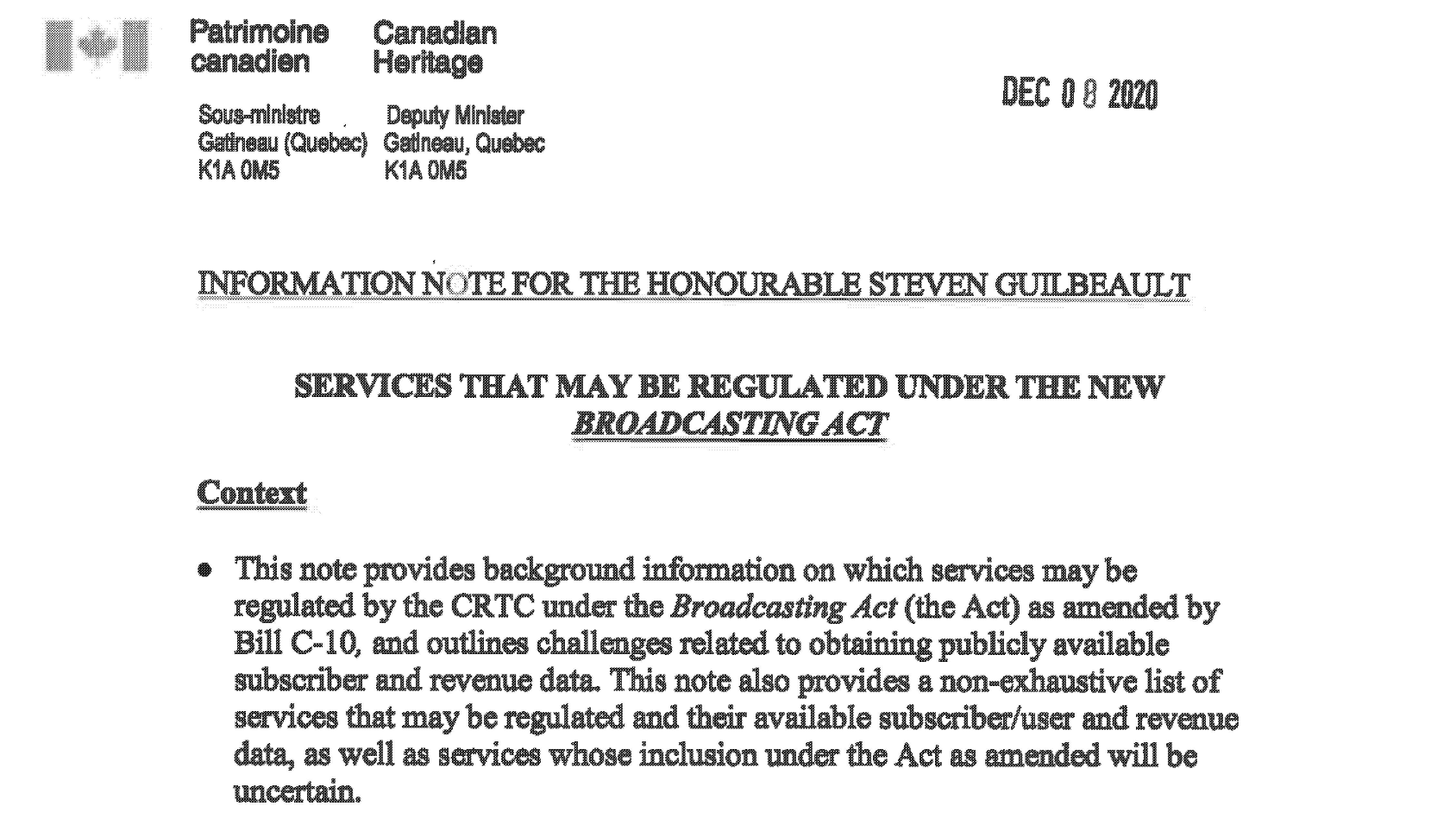Public Knowledge's Sherwin Siy with a good piece on some of the problems with ACTA. As Sherwin rightly notes, "ACTA's status as a trade negotiation seems less based in the nature of its substance than in the convenience that this designation provides."

Canadian Heritage Memorandum, December 8, 2020, ATIP A-2020-00498
Bill C-10
ACTA Podcast Explores Transparency and Substantive Concerns
Surprisingly Free has released a lengthy podcast in which I was interviewed about ACTA. The 40 minute podcast touches on a wide range of issues including transparency and substance of the agreement.
Toward an ACTA Super-Structure: How ACTA May Replace WIPO
[This post appears jointly here and at the PublicACTA site]
For the past two years, most of the ACTA discussion has centered on two issues: (1) substantive concerns such as the possibility of three strikes and a renegotiation of the WIPO Internet treaties; and (2) transparency issues. The leak of the comprehensive ACTA text highlights the fact that a third issue should be part of the conversation. The text reveals that ACTA is far more than a simple trade agreement. Rather, it envisions the establishment of a super-structure that replicates many of the responsibilities currently assumed by the World Intellectual Property Organization. Given the public acknowledgement by negotiating countries that ACTA is a direct response to perceived gridlock at WIPO, some might wonder whether ACTA is ultimately designed to replace WIPO as the primary source of international IP law and policy making.
Lessig and Goldsmith on ACTA’s Constitutional Concerns
Professors Larry Lessig and Jack Goldsmith published an op-ed in the Washington Post explaining why ACTA raises serious constitutional concerns in the United States.
Hammerstein on ACTA
David Hammerstein, a former Member of the European Parliament, has an interesting post on the behind-the-scenes ACTA activity.






